August 30, 2022 •
To the Good Morning Man
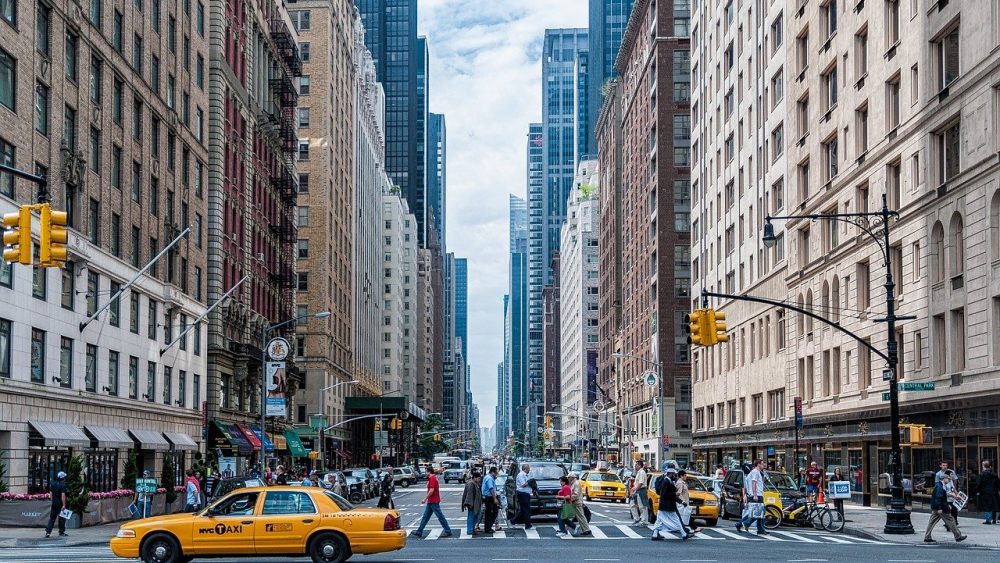
To the Good Morning Man – For nearly a decade here in Washington, D.C. on the corner of 15th and K Streets sat a man who would blow his whistle very loudly and proclaim “Goooooddddd Morninnnggg!” to everyone that walked by […]
To the Good Morning Man – For nearly a decade here in Washington, D.C. on the corner of 15th and K Streets sat a man who would blow his whistle very loudly and proclaim “Goooooddddd Morninnnggg!” to everyone that walked by – I’m telling you he blew that whistle about as loud as it could blow! You could hear him yell, “Good Morning Young Lady!” or “Good Morning Young Man!”. It would have been almost comical to see this had it not been for the fact that I suspected that he was a homeless man who just decided to pass his time away engaging with folks via his whistle and his cheerful voice!
You’ll notice that I’ve written this piece in the past tense, because, yes, unfortunately, I found out that “The Good Morning Man” passed away on July 29th from liver cancer. A news alert came through my phone noting this, along with the story of the man who once was known as Larry Tutt – a Vietnam Veteran who suffered from PTSD and lived a life that was plagued by drugs, mental illness and a decade in jail on a burglary conviction. As it turns out, according to a Washington Post article on Mr. Tutt, he was not homeless, but in fact rode the Metro each morning at 5:00am to head down to the corner of 15th and K Streets, an area in the heart of Washington, D.C.’s lawyer and lobby district, to bring a little cheer to everyone who walked by…
A few weeks ago, I was walking by that area and noticed that Mr. Tutt wasn’t there… There is scaffolding around the buildings located there, so I figured he just moved himself to another corner, though in the back of my mind, that explanation never really did seem comforting. Now, in the interest of full disclosure, I will admit that sometimes I would avoid walking passed 15th and K Streets because I would say to myself, “I don’t feel like hearing that loud whistle in my ear this morning!”. Little did I know how much I would miss hearing those sounds now that I’ll never get the chance to hear them again, nor to engage Mr. Tutt outside of just a friendly “Hello” as I kept on walking about my business – what I would do now to have one more opportunity just to talk to him and hear his story!
What a valuable lesson! Do take the time to engage with people at every opportunity – you will be surprised at what you’ll likely learn from one another, and oh what wonderful things you’ll have in common! Rest In Peace now Mr. Tutt, “Mr. Good Morning Man” — well deserved!
For more information on the life of Larry Tutt, see the Washington Post article referenced in this piece here.
Until Next Time!
February 17, 2022 •
DC Council Calls Special Legislative Meeting About COVID-19
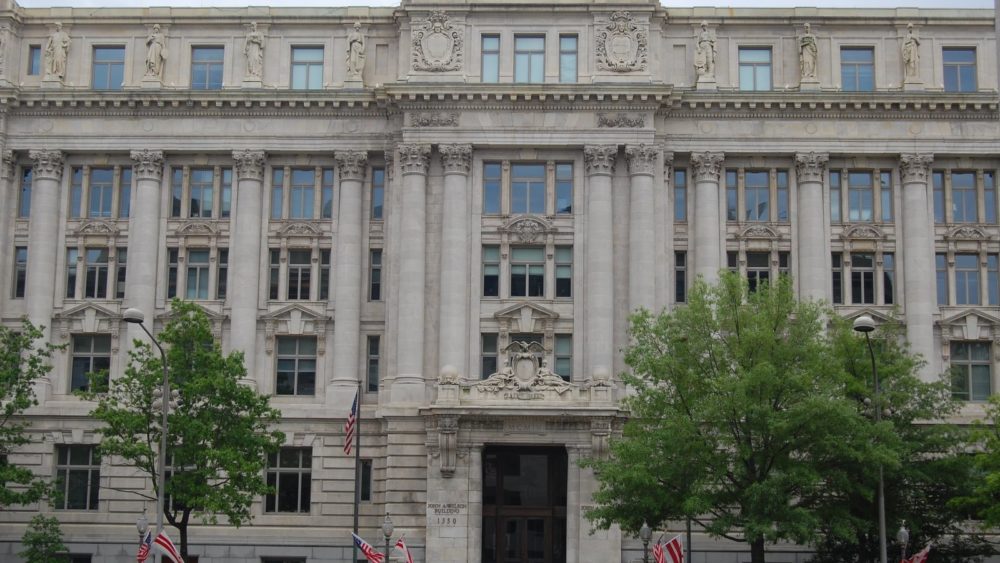
Washington D.C. City Hall
On February 18, a Special Legislative Meeting of the Council of the District of Columbia will be held. Chairman Phil Mendelson is calling the 13 councilmembers to come together under Council Rule 303(b) to consider legislation concerning COVID-19 vaccine mandates […]
On February 18, a Special Legislative Meeting of the Council of the District of Columbia will be held.
Chairman Phil Mendelson is calling the 13 councilmembers to come together under Council Rule 303(b) to consider legislation concerning COVID-19 vaccine mandates in the District, specifically the Public Health Protections Emergency Declaration Resolution of 2022 and the Public Health Protections Emergency Amendment Act of 2022. Nine votes are required to pass the emergency legislation. Additionally, the legislation cannot have costs associated with it.
This announcement came in part in reaction to Mayor Muriel Bowser lifting the requirement that District businesses check the vaccine status of patrons, according to WTOP News.
April 22, 2021 •
U.S. House Passes Bill to Grant Washington , D.C. Statehood
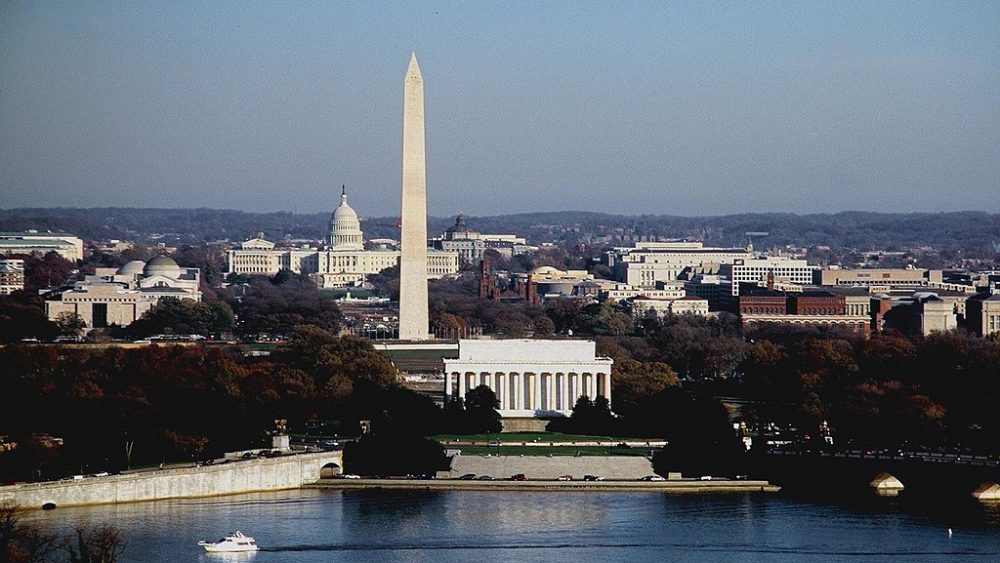
Washington DC Skyline - by Washington Photo Safari
Today, the U.S. House of Representatives passed legislation to make the District of Columbia the 51st state of the United States of America. House Bill 51, the Washington, D.C. Admission Act, would admit the District of Columbia into the union […]
Today, the U.S. House of Representatives passed legislation to make the District of Columbia the 51st state of the United States of America.
House Bill 51, the Washington, D.C. Admission Act, would admit the District of Columbia into the union on an equal footing with the other states. If passed, the mayor of the District of Columbia would issue a proclamation for the first elections to Congress of two senators and one representative.
The state would consist of all District territory, with specified exclusions for federal buildings and monuments, including the principal federal monuments, the White House, the Capitol Building, the U.S. Supreme Court Building, and the federal executive, legislative, and judicial office buildings located adjacent to the Mall and the Capitol Building. District territory excluded from the commonwealth would be known as the Capital and be the seat of the federal government. The bill maintains the federal government’s authority over military lands and specified other property.
Additionally, the new state would be prohibited from imposing taxes on federal property except as Congress permits.
House Bill 51 refers to the new state’s name as “State of Washington, Douglass Commonwealth.” The bill also establishes the Statehood Transition Commission to advise the president, Congress, the District, and commonwealth leaders on the transition.
January 9, 2020 •
Special Election on June 16 for Ward 2 D.C. Council Seat
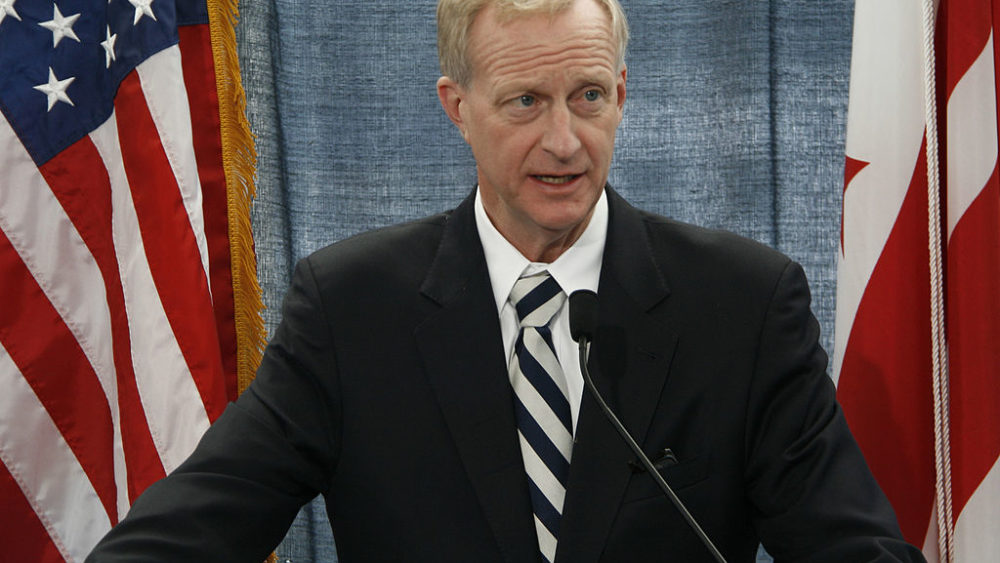
Former Councilman Jack Evans
On June 16, a special election will be held to fill the seat vacated by Ward 2 D.C. Councilmember Jack Evans. Evans resigned on January 7 to avoid a council vote on his removal based on alleged conflicts of interests. […]
On June 16, a special election will be held to fill the seat vacated by Ward 2 D.C. Councilmember Jack Evans.
Evans resigned on January 7 to avoid a council vote on his removal based on alleged conflicts of interests.
The winner of the special election will serve the remainder of Evan’s term, which ends in January 2021, according to WAMU.
On January 2, Rochelle Ford became the acting director of the District of Columbia’s Board of Ethics and Government Accountability. Ford was the Board’s Senior Attorney Advisor and had served as Interim General Counsel. Ford replaces Brent Wolfingbarger, who resigned […]
On January 2, Rochelle Ford became the acting director of the District of Columbia’s Board of Ethics and Government Accountability.
Ford was the Board’s Senior Attorney Advisor and had served as Interim General Counsel.
Ford replaces Brent Wolfingbarger, who resigned following a council oversight hearing where Wolfingbarger’s office’s performance came under criticism, according to the Washington City Paper.
His resignation was effective on December 31, 2019.
November 21, 2019 •
D.C. Council Aims to Tighten Loopholes in Subcontracting Law

Washington D.C. City Hall
The D.C. Council introduced a procurement bill designed to improve compliance with a district law that requires companies with large public contracts to subcontract some work to small local businesses. B23-0545 is aimed at closing loopholes to prevent program abuse […]
The D.C. Council introduced a procurement bill designed to improve compliance with a district law that requires companies with large public contracts to subcontract some work to small local businesses.
B23-0545 is aimed at closing loopholes to prevent program abuse and manipulation.
The bill would prohibit contractors from subcontracting work to companies in which they have an ownership stake to fulfill the law’s requirements.
Businesses applying to be considered local would be required to certify under penalty of perjury that the information they provide is correct.
The bill would also require more evidence from businesses that they are local, create a tip line for reporting violations, and increase the frequency of site inspections.
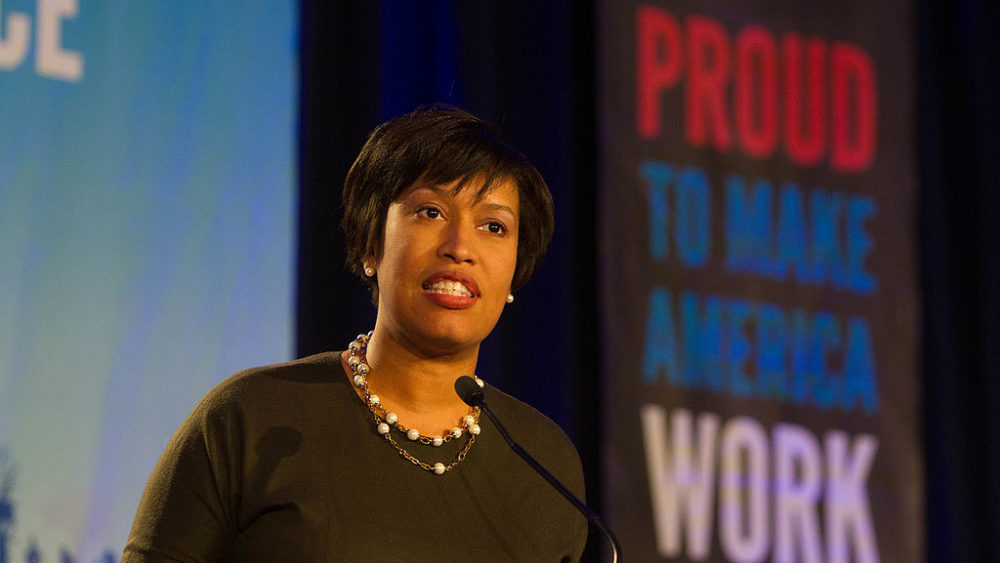
Washington D.C. Mayor Muriel Bowser - by AFGE
Mayor Muriel Bowser signed the Fair Elections Temporary Amendment Act of 2019 on July 1. The act amends the definition of a qualified small-dollar contribution to set a minimum value of cash or in-kind contributions at a value of $5. […]
Mayor Muriel Bowser signed the Fair Elections Temporary Amendment Act of 2019 on July 1.
The act amends the definition of a qualified small-dollar contribution to set a minimum value of cash or in-kind contributions at a value of $5.
Following a 30 day period of congressional review, the act will become effective .
The act will expire 225 days after becoming effective.

Washington D.C. Mayor Muriel Bowser - by AFGE
Mayor Muriel Bowser signed the Fair Elections Emergency Amendment Act of 2019 on May 22. The act amends the definition of a qualified small-dollar contribution to set a minimum value of cash or in-kind contributions at $5. The act became […]
Mayor Muriel Bowser signed the Fair Elections Emergency Amendment Act of 2019 on May 22.
The act amends the definition of a qualified small-dollar contribution to set a minimum value of cash or in-kind contributions at $5.
The act became effective following the approval by Mayor Bowser and will remain in effect until August 20.
March 12, 2019 •
Major Campaign Finance Reform Becomes Effective
District of Columbia Act 22-578 passed Congressional review and is now effective. The Campaign Finance Reform Amendment Act of 2018 removes the Office of Campaign Finance from the Board of Elections and establishes an independent five-member Campaign Finance Board (CFB). […]
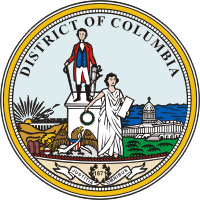 District of Columbia Act 22-578 passed Congressional review and is now effective.
District of Columbia Act 22-578 passed Congressional review and is now effective.
The Campaign Finance Reform Amendment Act of 2018 removes the Office of Campaign Finance from the Board of Elections and establishes an independent five-member Campaign Finance Board (CFB).
The Act restricts political contributions by contractors doing business with the district and addresses improper coordination between campaigns, political action committees, and independent expenditure committees.
The pay-to-play component of the bill bans campaign contributions by businesses seeking contracts of $250,000 or more.
The pay-to-play provisions take effect after the November 2020 general election.
December 5, 2018 •
D.C. Campaign Finance Bill Passes Second Vote
The D.C. Council unanimously approved a bill in a second full council vote that aims to restrict political contributions by government contractors doing business with the district. The bill also addresses improper coordination between campaigns, political action committees and independent […]
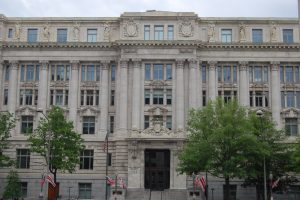 The D.C. Council unanimously approved a bill in a second full council vote that aims to restrict political contributions by government contractors doing business with the district.
The D.C. Council unanimously approved a bill in a second full council vote that aims to restrict political contributions by government contractors doing business with the district.
The bill also addresses improper coordination between campaigns, political action committees and independent expenditure committees.
The pay-to-play component of the bill would ban campaign contributions by businesses seeking contracts of $250,000 or more.
Provided the mayor approves the legislation, the act of the council travels to Congress for a 30-day review. If approved and funded, the bill would take effect on October 1, 2019.
Pay-to-play provisions would take effect after the November 2020 general election.
November 26, 2018 •
D.C. Council Approves Pay-to-Play Reforms
The Washington D.C. Council approved a bill in a first full council vote that aims to restrict political contributions by government contractors doing business with the district. The bill also addresses improper coordination between campaigns, political action committees and independent […]
 The Washington D.C. Council approved a bill in a first full council vote that aims to restrict political contributions by government contractors doing business with the district.
The Washington D.C. Council approved a bill in a first full council vote that aims to restrict political contributions by government contractors doing business with the district.
The bill also addresses improper coordination between campaigns, political action committees and independent expenditure committees.
The pay-to- play component of the bill would ban campaign contributions by businesses seeking contracts of $250,000 or more.
The council votes again on the bill in December. If approved and funded, the bill would take effect on October 1, 2019.
Pay-to-play provisions would take effect after the November 2020 general election.
November 16, 2018 •
The District of Columbia Adjusts Procurement and Lobbying Requirements
Act A22-0442, which included the Board of Ethics and Government Accountability Amendment Act of 2018, passed congressional review. The Act expands the scope of procurement lobbying in the District of Columbia to include action by an executive agency or official […]
 Act A22-0442, which included the Board of Ethics and Government Accountability Amendment Act of 2018, passed congressional review.
Act A22-0442, which included the Board of Ethics and Government Accountability Amendment Act of 2018, passed congressional review.
The Act expands the scope of procurement lobbying in the District of Columbia to include action by an executive agency or official in the executive branch to contract, grant or procure goods or services.
The lobbyist reporting periods change from semi-annual to quarterly reporting in January 2019.
Additional registration requirements were added including the precise description of the subject matter, including any bill, proposed resolution, contract, or other legislation of all writing or oral communications related to lobbying activities conducted with an executive or legislative member or official’s staff.
November 28, 2016 •
DC Council Member to Introduce Emergency Legislation for Campaign Finance Reforms
D.C. Council Member Kenyan McDuffie announced his plan to introduce emergency legislation to ban contributions to political action committees during non-election years. There are currently other bills pending before the council that also seek to close this same campaign finance […]
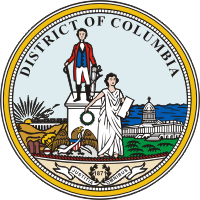 D.C. Council Member Kenyan McDuffie announced his plan to introduce emergency legislation to ban contributions to political action committees during non-election years.
D.C. Council Member Kenyan McDuffie announced his plan to introduce emergency legislation to ban contributions to political action committees during non-election years.
There are currently other bills pending before the council that also seek to close this same campaign finance loophole, but they only had their first public hearings Nov. 16 and are unlikely to pass before the start of 2017.
McDuffie’s emergency bill would bypass many of the steps ordinarily required.
February 23, 2016 •
DC Attorney General Seeks to Close PAC Loophole
Attorney General Karl A. Racine proposed a new bill to close the current loophole allowing unlimited donations to political action committees (PACs) in non-election years. The bill also contains a pay-to-play provision creating a two-year period of ineligibility for “high value” […]
 Attorney General Karl A. Racine proposed a new bill to close the current loophole allowing unlimited donations to political action committees (PACs) in non-election years. The bill also contains a pay-to-play provision creating a two-year period of ineligibility for “high value” city business for any company that contributes to a candidate or elected official.
Attorney General Karl A. Racine proposed a new bill to close the current loophole allowing unlimited donations to political action committees (PACs) in non-election years. The bill also contains a pay-to-play provision creating a two-year period of ineligibility for “high value” city business for any company that contributes to a candidate or elected official.
The legislation comes after public concern raised last year when Mayor Muriel E. Bowser’s PAC received unlimited contributions from businesses seeking contracts from her administration.
State and Federal Communications, Inc. provides research and consulting services for government relations professionals on lobbying laws, procurement lobbying laws, political contribution laws in the United States and Canada. Learn more by visiting stateandfed.com.

